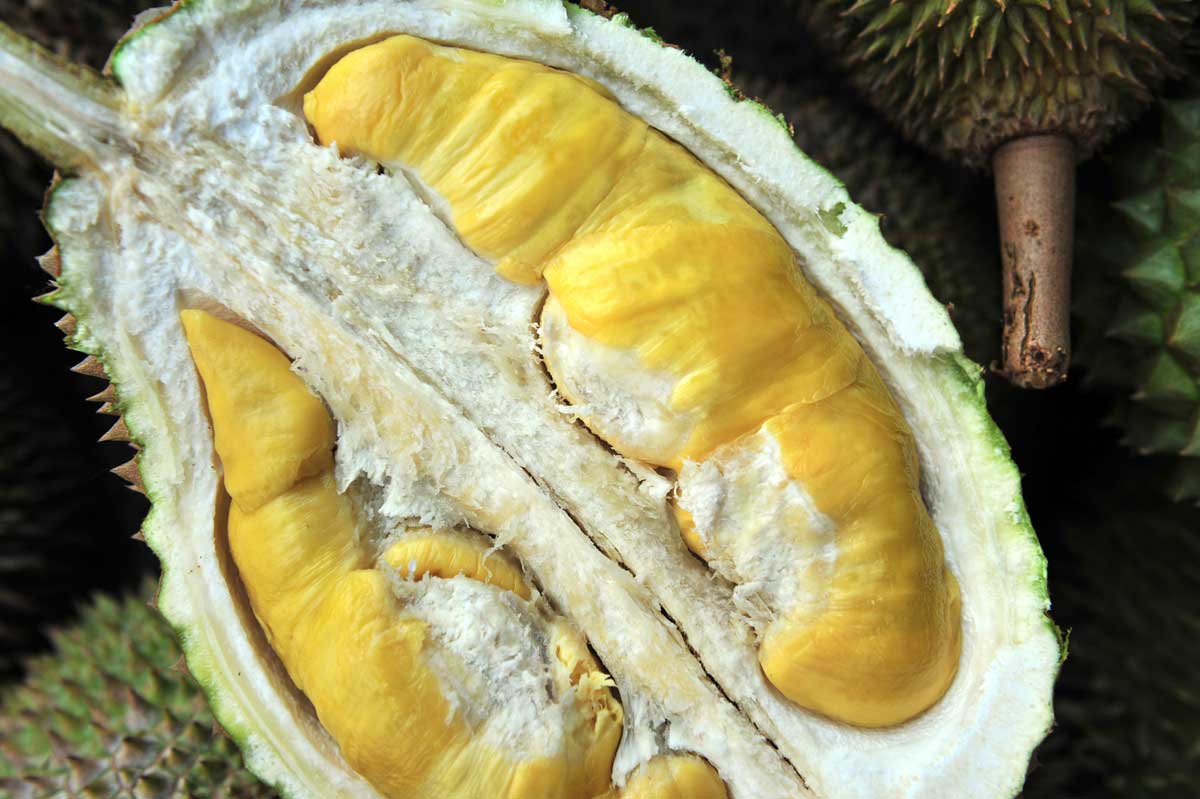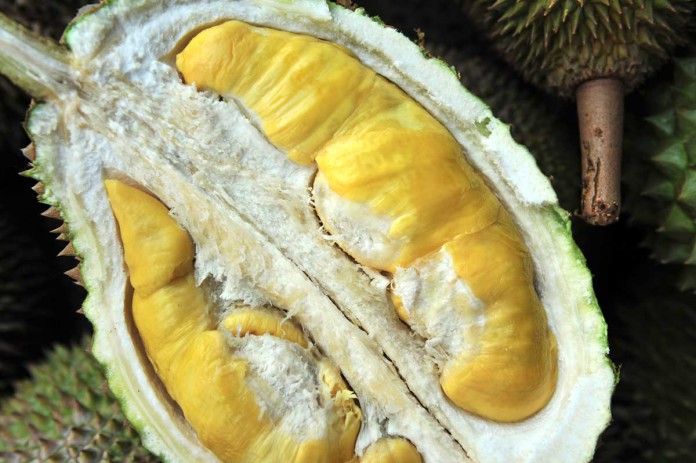As the king of fruits finds an increasingly bigger following in China, durian lovers in Malaysia and Singapore find prices spiking and supplies at home dwindling, reports PAULINE D. LOH.
TO understand China, sit down and eat with them. Food is the indestructible bond that holds the social fabric together. It is also one of the last strong bonds of community and culture.
But where does the durian, a pungent South-East Asian fruit, fit in here?
For some, it is an abomination from hell, raising an intolerable stink that is an assault on the senses.
To others, it is ambrosia from heaven, nature’s gift of the perfect fruit. And now, the durian is finding an increasing following in China, land of a million gourmets.
While plantation owners in South-East Asia are delirious with delight at this growing trend, their faithful consumers in traditional markets are not so happy.
Because of the demand in China, supplies in both Singapore and its native Malaysia have fallen greatly, and prices have skyrocketed this year.
Designer varieties, like the Musang King and D24 especially, have mostly been sent to China, leaving durian lovers in Singapore and Malaysia scrabbling for what’s left.
“These are special trees that fruit in the equatorial foothills at about 1,000m above sea level.
They need cooler weather at night to set fruit after pollination by bats, and the best come from Pahang,” says Eric Chew, who shifted his Malaysian durian sales operations to Guangzhou five years ago.
His company sells mainly Malaysian Musang King durians to China and has expanded with more carefully chosen plantation sites in Laos and Vietnam to meet Chinese demands for the fruit.
The most popular products in China are vacuum-packed, flash-frozen Musang King durian, as well as Sudan King and D24 frozen durian pulp, which is suitable for hotel bakeries and professional confectioneries.
Chew’s company, Durian Royal Family, is a wholesaler that used to cater only to major clients with minimum orders in container loads.
In 2011, China lifted its restrictions on the import of Malaysian durian and demand from smaller retailers boomed.
It is for this section of the market that Chew decided to set up his base in Guangzhou, from where he directly serves clients from Shanghai, Beijing and Guangzhou.
“There are a lot of online sellers in Shanghai, so we do most of our business there. In Beijing, we cater mainly to five-star hotels.”
Guangzhou and Hong Kong are established markets, since the Cantonese have been eating and loving durian for a long time.
They believe this nutrient-rich fruit is a natural tonic with recuperative qualities.
Chew says that since 2011, the wholesale price of quality durian in China has risen from RM3 per kilogram to more than RM70. The current exchange rate is RM1 to 1.60 yuan.
The 20-fold increase is still continuing and, with supplies being imited, prices look likely to go up even more.
A quick check online shows that Chinese consumers are paying from 400 to 500 yuan for half a large durian, and about 350 on average for a 200g tub of ready-to-eat durian pulp.
Why are the Chinese prepared to pay so much for this prickly, pungent fruit?
Tastewise, you either love it or hate it. Will Ding and his wife, Zhang Ying, are typical converts.
“When we first went to Singapore, we couldn’t stand the smell and couldn’t understand why people were so enthusiastic about it,” says Ding. “Then we took a trip to Penang in Malaysia and visited a specialty stall.
“The proprietor patiently introduced us to all the varieties – buttery sweet ones, the bittersweet varieties. We were hooked from then on.”
The couple compare the experience to wine-tasting.
These days, Ding and Zhang take trips each year to seek out the best durians in season, and the names of designer varietals like Musang King, Sudan King, Red Prawn and D24 roll easily off their tongues.
The proliferation of international five-star hotels with their globalised kitchens has also done its part in introducing this exotic fruit, converting younger consumers in China with seductive durian desserts.
Many executive chefs and F&B directors are from Singapore and Malaysia, and they have made efforts to introduce their favourite fruit to their diners.
Many hotels even have special durian promotions in season.
China, it seems, has awakened to the intense pleasures of the King of Fruit and things will never be the same again.






